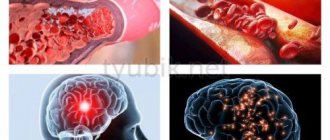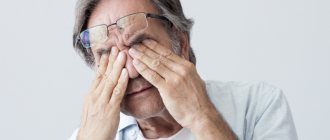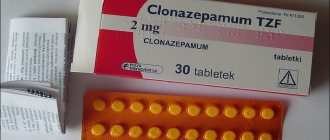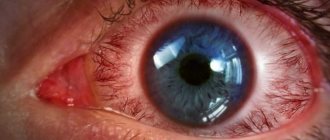Antidepressants help restore normal levels of chemicals in the brain that are involved in regulating sadness and anxiety. In people with depression who take antidepressants, the levels of neurotransmitters (hormones) in the brain normalize. When antidepressants, which affect the brain by affecting serotonin, are suddenly stopped, the body may respond by developing physical and emotional symptoms caused by the sudden absence of the increased serotonin levels that occur when taking the antidepressant.
These symptoms are not the same as physical withdrawal from the drug. Physiological withdrawal occurs when a patient takes a drug that can be addictive. However, the question “How to get off antidepressants” is asked by patients to a psychiatrist very often. In some cases, you can take antidepressants for the rest of your life, but their withdrawal is also possible, but this issue should be dealt with by a specialist. The patient must understand that it is possible to decide how much antidepressant to take only together with the attending physician. Psychiatrists at the Yusupov Hospital individually develop optimal timing and dosages for taking medications for each patient, allowing them to achieve the desired treatment effect while avoiding side effects.
Antidepressants are not addictive. The effect of antidepressant withdrawal is not related to addiction, but may reflect the physiological effects of stopping the drug in the same way as when a person with diabetes stops taking insulin. Almost one in five people who take antidepressants for six weeks or more may experience withdrawal symptoms if they suddenly stop taking the medication.
It is impossible to predict whether you will experience withdrawal symptoms after stopping an antidepressant. Scientists believe that suddenly stopping an antidepressant does not give the brain time to adjust to rapid changes in neurotransmitter levels. Therefore, you should not stop taking antidepressants.
All depression medications have the potential to cause unwanted symptoms, but some are much more likely to cause symptoms than others. Withdrawal symptoms are more likely to occur with antidepressants that remain in the body for a shorter period of time, especially those that affect both serotonin and norepinephrine.
You should not suddenly stop taking antidepressants, even if you feel better. Stopping antidepressants too early may cause depressive symptoms to return. If you need advice on taking or properly stopping antidepressants, or you have undesirable symptoms that have developed as a result of self-cessation of an antidepressant, and you urgently need advice from a psychiatrist, contact the Yusupov Hospital. You can make an appointment with a private psychiatrist at our clinic on the website.
The Yusupov Hospital employs doctors who have higher medical degrees.
education and specialization in psychiatry. Doctors at Yusupov Hospital
They regularly take advanced training courses and do internships in leading foreign psychiatric clinics.
When treating patients, doctors at the Yusupov Hospital use only new medications that have passed all studies and have proven effective in treating mental illnesses in the Russian Federation and have a minimal range of side effects.
Who needs antidepressants?
- People with moderate to severe depression
- People with panic attacks
- People with mild depression who are unable to begin psychotherapy
- People with increased anxiety and anxiety-depressive disorder
- People with chronic pain
These are not all indications for taking antidepressants, but only the main ones. I will dwell on each point in more detail.
Almost always, in cases of moderate and severe depression, you need to use pills. Yes, psychotherapy will also help, but before you start it, you need to relieve the acute condition in which the therapist simply cannot finish shouting to you. You are in your cocoon, and even if it hurts your forehead, you will still hold on tightly to your condition. So the doctor needs help, and it is best if you start taking antidepressants. They should also be taken by those who do not have the opportunity to go to psychotherapy - for any stages of depression, even mild ones. Remember that depression brings with it real illnesses, and therefore it must be dealt with in any way.
People with panic attacks (I also plan to write an article on them) may not have depression, but they will still be prescribed antidepressants. If you haven’t prescribed it, go to another doctor, because tranquilizers alone will not cope with panic, which generally cannot be prescribed for a long course. Antidepressants for panic attacks are not prescribed for such a long course as for depression, and they help avoid relapses even after the end of the course of treatment.
Everything about anxiety is clear - almost all antidepressants have indications for the treatment of anxiety disorders. They help a person calm down and not stress himself out endlessly.
For chronic pain, you may also be prescribed antidepressants, and do not rush to argue with your doctor. There are pills that have proven to work well for pain, especially chronic pain. In addition, if something hurts for a long time, then sooner or later you will still fall into depression and anxiety, and it is far from a fact that you will notice it.
Why are antidepressants dangerous and harmful?
To understand why medications will never cure depression, you need to understand why it occurs.
Yes, it is true that during depression the concentration of certain hormones decreases. But this is only a consequence of more complex pathological processes in the body, leading to such an imbalance. And if we artificially change the amount of hormones with the help of antidepressants, we will only be able to change the pathology temporarily. Then it will return again and often with even greater force. We haven't solved the problem at its root.
Depression is a disease of the soul and body, an imbalance in internal energy, a distorted view of the surrounding reality.
Depression can occur either from too low energy or from high energy. With a low level of energy, a person ceases to experience such positive feelings as joy, love, pleasure, and he loses his taste for life. And with high energy, but distorted work of the psyche, this distortion, mental pathology is increased by high energy.
To cope with depression, you need to correct the mental distortion, as well as restore balance in the energy. If the energy is very low, you need to increase it.
And how do antidepressants and many other medications used to treat mental pathologies actually work? Yes, they change the hormonal composition, but they also reduce the level of vital energy. Now the energy that fed the pathological distorted state of the psyche, which does not allow one to live normally, decreases and the person no longer feels it so strongly.
He can forget about it, push it out of actual consciousness. But it didn't disappear. The distortion is driven deep inside. We can say that antidepressants do not treat depression, but drive it inside, into the subconscious, reducing the power of its influence. But the problem has not disappeared, it continues to poison a person, but it does so unnoticed.
Often the cause of depression is some kind of internal feeling, which, for example, as a result of stress, was driven inside. A person cannot understand what it is, but this feeling unconsciously, unnoticed by the person himself, ruins his life. To get rid of a driven emotion, you must first get it out of the depths of the subconscious, and then dissolve it, becoming aware of it.
How will antidepressants affect the human body if you start taking them?
By changing the hormonal levels artificially, they take the body's reserve sources of energy for these purposes. All this is unnatural and greatly reduces vitality. Imagine, there is a violation at a deeper level, and we are artificially trying to change this violation at a superficial level.
And as mentioned above, a low level of vital energy is also one of the causes of depression, since a person stops experiencing positive feelings and emotions. Over time, a vicious circle develops, from which there seems to be no way out.
How long should you take antidepressants?
As a rule, the course of treatment can last up to six months for anxiety, pain and panic attacks, and up to a year or more for depression, especially severe ones. Some will have to take antidepressants for life, and there is nothing wrong with that. Believe me, with your depression and neuroses you will feel much worse than if you took pills for life. Don't be afraid for your liver - modern pills are very good friends with it. There are people who need to take heart medications or hormones for life, and no one has died. Compared to hormones, antidepressants are garbage.
You always need to evaluate your condition - if you feel better, then you should not quit the pills, you must definitely complete the course.
How do you know if antidepressants are not helping?
This is quite a complex topic, and doctors often stop the pills after a week without seeing any improvement. And after a couple of days of taking it, we ourselves begin to think that since all the symptoms have not gone away, then we need to quit. But you can say that an antidepressant is not helping you only if you take it for 3-4 weeks at the maximum dosage.
I especially focus on this - to the maximum! Doctors quite often prescribe very low doses of antidepressants, and I can't understand why they do this. At low doses, you will get all the side effects, but you are unlikely to get any results. For example, the same amitriptyline is prescribed for the most part at 75 mg per day, when its antidepressant effect begins to appear only at 150 mg, that is, at a dose twice as high! And I have experienced this myself, so I can say with confidence that low doses practically do not work. If in my blog entries you have come across my experiments with low doses of the same amitriptyline, then do not rush to take this into account - I have an excellent placebo effect, that is, I don’t care what to take and in what doses - the effect will be from the very fact of taking it . And mild depression is perfectly relieved by this. So if you have no effect from a low dose, increase your dosage! And if there is, rejoice, you are also subject to the placebo effect.
I don't know what would make me stop drinking them.
“I have had chronic depression since I was 16 years old. At first I thought that everything was fine, that it should be so, I tried different techniques, but then it turned out that I needed medication. And only they made me a normal person. The doctor told me: “If you had diabetes, you would have to take insulin. You have low serotonin, you also need to take pills to increase it!“
At first I didn’t feel very well, and I started to have insomnia. And then everything got better. They haven't made my life incredibly easy or stress-free, but at least I can do everything that normal people do.
It seems to me that we need to abandon the word “antidepressants” so that people don’t get scared. Call these medications, for example, “serotonin supplements,” and the opinion of those who have not experienced depression will definitely improve,” Ksenia, 32 years old.
Of course not all my life, but long enough. From 3 months to several years. But basically it’s 1 year. It takes 3-4 months for stable normal levels of serotonin and norepinephrine to form and not change again after withdrawal. But the duration of taking AD does not affect feelings of happiness in any way. You can take antidepressants for at least 5 years, but without proper work on yourself you will not become happier.
How soon do antidepressants begin to help?
This is also a very important point. There will be no immediate results. You will have to wait at least a week to evaluate the effect. After a week, paroxetine, for example, begins to act, and therefore it is considered the drug of choice if a quick effect is needed. You can also feel quick relief from tricyclic antidepressants, but they have not yet developed their antidepressant effect, but only relieved anxiety and improved sleep.
The rest of the drugs begin to act after 2-3 weeks, not earlier. Be prepared for the fact that you will have to wait for the effect, and do not rush to change or even cancel the pills.
Antidepressants: principle of action, classes of drugs
Antidepressants work in different ways. But they all target brain chemicals called neurotransmitters that help regulate mood. “Antidepressants restore the balance of neurotransmitters, improving mood and controlling anxious feelings. And in some cases, they also improve appetite,” says Dr. Hernandez.
There are four classes of antidepressants:
- Selective serotonin reuptake inhibitors (SSRIs or SSRIs): fluoxetine (Prozac).
- Serotonin-norepinephrine serotonin reuptake inhibitors (SNRIs): venlafaxine (Effexor) and duloxetine (Cymbalta).
- Tricyclic and tetracyclic antidepressants: nortriptyline (Pamelor) and imipramine (Tofranil).
- Monoamine oxidase inhibitors (MAOIs): isocarboxazid (Marplan) and phenelzine (Nardil).
- “Atypical” antidepressants: bupropion (Wellbutrin) and mirtazapine (Remeron).
After a thorough assessment of your health and your medications, your doctor will prescribe an appropriate antidepressant.
Side effects of antidepressants
Oh, this is a huge field for speculation. Antidepressants will almost always let you experience the side effects first hand, so you also need to be prepared for this and should not be afraid of it. You will not die, although sometimes it will seem to you that you are leaving for another world.
The side effects of antidepressants are especially severe in those suffering from panic disorders and anxiety. In the first days, all this can greatly intensify, and at the same time, patients run to the doctor and demand that the drug be discontinued, or, worse, quit it themselves. This should only be done if the side effects are intolerable. Well, you just die and don’t see the white light. Then yes, you need to cancel. And then try another drug. If you had a bad time at one, it doesn’t mean that it will be bad at all the others too. Sometimes it takes almost the tenth time to find an antidepressant.
Almost all side effects can be smoothed out with not very large doses of tranquilizers. If you have a competent doctor, he will definitely prescribe them. If you are not very literate, then ask to write it out. Tranquilizers should not be taken for long, two weeks maximum, then your body will get used to the antidepressant and they can be discontinued.
The most common symptom that occurs when taking antidepressants is drowsiness. You begin to sleep at night, and during the day, and at work, and at home - generally everywhere. You shouldn't be afraid of this. The drug makes you restore strength, which comes to us in our sleep. Drowsiness may also appear if anxiety is suddenly removed.
Many antidepressants also cause dry mouth. There is nothing wrong with this either - you can chew gum, and then this side effect will not be so pronounced. Dilated pupils, a not very confident gait - this can also happen, so from the outside you will look like a drug addict











